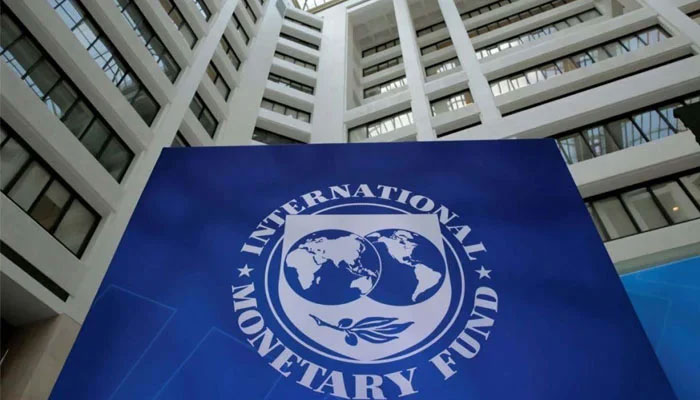IMF suggests powerful panel for collection of federal, provincial taxes
The IMF has conveyed its policy prescriptions to Pakistani authorities
ISLAMABAD: The International Monetary Fund (IMF) has recommended the Federal Board of Revenue (FBR) the establishment of a modern and semi-autonomous tax authority for collecting federal and provincial taxes over a long-term period.
“The split in taxing rights between the federal government and provinces poses challenges for tax policy making and revenue administration,” it said.
The IMF has conveyed its policy prescriptions to Pakistani authorities and asked that on a long-term basis, these discussions be completed and actions taken with the objectives of creating a modern tax authority for collecting all taxes at federal and provincial levels of the country.
Parliament may only legislate on matters including taxation matters that are expressly enumerated in the Federal Legislative List as set out in the Fourth Schedule of the Constitution. While parliament has broad legislation powers over most common tax types, there are notable exceptions which are under the legislative domain of the provincial assemblies, including taxes on agriculture income and taxes on immoveable property in addition to sales tax on services.
The split of responsibilities for the sales tax on services and goods, which are typically part of the same value chain, causes confusion and distortions. Some federal tax revenues are placed in the divisible pool where proceeds are distributed between the Centre and provinces under the NFC Award.
“This also creates distortions where the federal government favours the collection of taxes that are not put in the divisible pool, for instance Petroleum Development Levy, and provinces face reduced incentives for maximizing their own revenues,” stated the IMF in its report.
-
 Critics Target Palace Narrative After Andrew's Controversy Refuses To Die
Critics Target Palace Narrative After Andrew's Controversy Refuses To Die -
 Sarah Ferguson’s Delusions Take A Turn For The Worse: ‘She’s Been Deserted’
Sarah Ferguson’s Delusions Take A Turn For The Worse: ‘She’s Been Deserted’ -
 ICE Agents 'fake Car Trouble' To Arrest Minnesota Man, Family Says
ICE Agents 'fake Car Trouble' To Arrest Minnesota Man, Family Says -
 Camila Mendes Reveals How She Prepared For Her Role In 'Idiotka'
Camila Mendes Reveals How She Prepared For Her Role In 'Idiotka' -
 China Confirms Visa-free Travel For UK, Canada Nationals
China Confirms Visa-free Travel For UK, Canada Nationals -
 Inside Sarah Ferguson, Andrew Windsor's Emotional Collapse After Epstein Fallout
Inside Sarah Ferguson, Andrew Windsor's Emotional Collapse After Epstein Fallout -
 Bad Bunny's Star Power Explodes Tourism Searches For His Hometown
Bad Bunny's Star Power Explodes Tourism Searches For His Hometown -
 Jennifer Aniston Gives Peek Into Love Life With Cryptic Snap Of Jim Curtis
Jennifer Aniston Gives Peek Into Love Life With Cryptic Snap Of Jim Curtis -
 Prince Harry Turns Diana Into Content: ‘It Would Have Appalled Her To Be Repackaged For Profit’
Prince Harry Turns Diana Into Content: ‘It Would Have Appalled Her To Be Repackaged For Profit’ -
 Prince William's Love For His Three Children Revealed During Family Crisis
Prince William's Love For His Three Children Revealed During Family Crisis -
 Murder Suspect Kills Himself After Woman Found Dead In Missouri
Murder Suspect Kills Himself After Woman Found Dead In Missouri -
 Sarah Ferguson's Plea To Jeffrey Epstein Exposed In New Files
Sarah Ferguson's Plea To Jeffrey Epstein Exposed In New Files -
 Prince William Prepares For War Against Prince Harry: Nothing Is Off The Table Not Legal Ways Or His Influence
Prince William Prepares For War Against Prince Harry: Nothing Is Off The Table Not Legal Ways Or His Influence -
 'How To Get Away With Murder' Star Karla Souza Is Still Friends With THIS Costar
'How To Get Away With Murder' Star Karla Souza Is Still Friends With THIS Costar -
 Pal Reveals Prince William’s ‘disorienting’ Turmoil Over Kate’s Cancer: ‘You Saw In His Eyes & The Way He Held Himself’
Pal Reveals Prince William’s ‘disorienting’ Turmoil Over Kate’s Cancer: ‘You Saw In His Eyes & The Way He Held Himself’ -
 Poll Reveals Majority Of Americans' Views On Bad Bunny
Poll Reveals Majority Of Americans' Views On Bad Bunny




